The Rainbow Alliance of The Bahamas was a support and advocacy group for persons in the gay, lesbian, bisexual and transgender community.
The group was established in May 1999 during a social event hosted by members of other LGBTQ groups. The members of those groups, BGLAD (Bahamian Gays and Lesbians Against Discrimination) and Hope TEA (Hope Through Education and Awareness), decided it would be better to pool their resources together and create one national gay rights organization. They named it “The Rainbow Alliance of The Bahamas.”
At that time RAB was essentially a support group, organizing LGBT socials and the annual, low-key gay pride event in The Bahamas. However, in 2004 when Bishop Sam Greene threatened to blow up parliament if the government had followed Canada and legalized gay marriage in The Bahamas, group members felt the need to stand up against him and other forms of bigotry and discrimination in the country.
The activist arm of the group placed it in the public spotlight between 2004 and 2008. The group eventually disbanded in 2008 due to a lack of resources.
There is no legislation in The Bahamas that addresses basic human rights concerns of LGBT (Lesbian, Gay, Bisexual, and Transgender) people. In fact, discrimination can be found in existing laws on same-sex relationships. One example is the law regarding the age of consent.
Homosexual relations between consenting adults have been legal in The Bahamas since May 1991, but the age of consent is two years higher than that for heterosexuals – 18 vs. 16. Adult heterosexual men can legally engage in sexual activity with 16-year-old girls, though these teens are considered minors. Homosexual men however, have been charged before the courts for having consensual sex with 16- and 17-year-old males.
LGBT Bahamians are also subject to discrimination in employment. The Employment Bill of 2001, which had a clause barring discrimination in the workplace based on sexual orientation, was passed with that clause removed.[ citation needed ] The law was amended again in 2002, still without protecting LGBT Bahamians.[ citation needed ]
In addition to protesting these laws, RAB spoke out strongly against its lack of inclusion in the former government's Constitutional Reform Commission. The commission, which included outspoken anti-gay Bishop Sam Greene, had been reviewing the country's unamended 1973 constitution between 2003 and 2006. It failed to consider a person's sexual orientation as an attribute deserving of protection from discrimination in a preliminary report it presented to the Cabinet on March 21, 2006.
Bahamas' current LGBT group:

The LGBTQ community is a loosely defined grouping of lesbian, gay, bisexual, transgender, and queer or questioning individuals united by a common culture and social movements. These communities generally celebrate pride, diversity, individuality, and sexuality. LGBTQ activists and sociologists see LGBTQ community-building as a counterweight to heterosexism, homophobia, biphobia, transphobia, sexualism, and conformist pressures that exist in the larger society. The term pride or sometimes gay pride expresses the LGBTQ community's identity and collective strength; pride parades provide both a prime example of the use and a demonstration of the general meaning of the term. The LGBTQ community is diverse in political affiliation. Not all people who are lesbian, gay, bisexual, or transgender consider themselves part of the LGBTQ community.
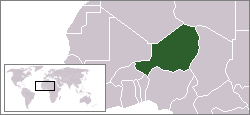
Lesbian, gay, bisexual, and transgender (LGBT) people in Niger face legal challenges not experienced by non-LGBT residents. Although same-sex sexual activity is legal, the Nigerien LGBT community faces stigmatization among the broader population.

Lesbian, gay, bisexual, and transgender (LGBT) people in the Democratic Republic of the Congo (DRC) face discrimination and legal challenges not experienced by non-LGBTQ residents. Same-sex sexual activity is legal for both males and females in the Democratic Republic of the Congo, although LGBT individuals may still be targeted for prosecution under public indecency provisions on occasion.
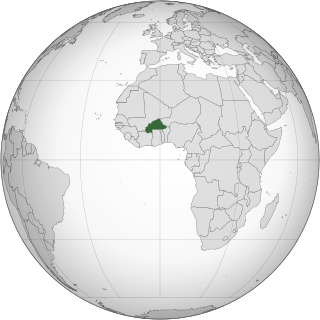
Lesbian, gay, bisexual, and transgender (LGBT) people in Burkina Faso face legal issues not experienced by non-LGBTQ citizens. Although same-sex sexual acts are legal for both men and women in Burkina Faso, there is no legal recognition of same-sex marriage or adoption rights.

Lesbian, gay, bisexual and transgender (LGBT) people in the Bahamas have limited legal protections. While same-sex sexual activity is legal in the Bahamas, there are no laws that address discrimination or harassment on the account of sexual orientation or gender identity, nor does it recognize same sex unions in any form, whether it be marriage or partnerships. Households headed by same-sex couples are also not eligible for any of the same rights given to opposite-sex married couples.

Lesbian, gay, bisexual, and transgender (LGBT) rights in Cyprus have evolved in recent years, but LGBTQ people still face legal challenges not experienced by non-LGBT residents. Both male and female expressions of same-sex sexual activity were decriminalised in 1998, and civil unions which grant several of the rights and benefits of marriage have been legal since December 2015. Conversion therapy was banned in Cyprus in May 2023. However, adoption rights in Cyprus are reserved for heterosexual couples only.
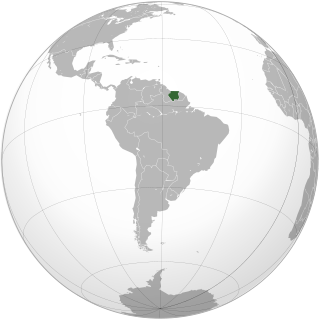
Lesbian, gay, bisexual, and transgender (LGBT) people in Suriname may face legal challenges not experienced by non-LGBTQ residents. Both male and female expressions of same-sex sexual activity are legal in Suriname. Since 2015, hate speech and discrimination in employment and the provision of goods and services on the basis of sexual orientation has been banned in the country. Same-sex marriage and civil unions are not recognised by law. Nevertheless, Suriname is legally bound to the January 2018 Inter-American Court of Human Rights ruling, which held that same-sex marriage is a human right protected by the American Convention on Human Rights.

Lesbian, gay, bisexual, and transgender (LGBT) people in Albania face legal challenges not experienced by non-LGBT residents, although LGBT people are protected under comprehensive anti-discrimination legislation. Both male and female same-gender sexual activities have been legal in Albania since 1995, but households headed by same-sex couples are not eligible for the same legal protections available to opposite-gender couples, with same-sex unions not being recognized in the country in any form.

Lesbian, gay, bisexual, and transgender (LGBT) people in Azerbaijan face significant challenges not experienced by non-LGBTQ residents. Same-sex sexual activity has been legal in Azerbaijan since 1 September 2000. Nonetheless, discrimination on the basis of sexual orientation and gender identity are not banned in the country and same-sex marriage is not recognized.
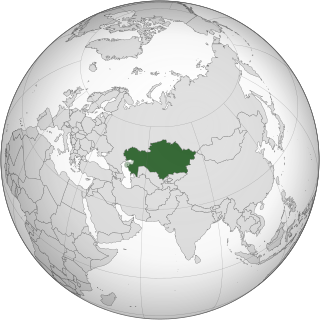
Lesbian, gay, bisexual, and transgender (LGBT) people in Kazakhstan face significant challenges not experienced by non-LGBTQ residents. Both male and female kinds of same-sex sexual activity are legal in Kazakhstan, but same-sex couples and households headed by same-sex couples are not eligible for the same legal protections available to opposite-sex married couples.
Sexual orientation discrimination is discrimination based on a person's sex, sexual orientation, gender identity, or pregnancy.

Lesbian, gay, bisexual, and transgender (LGBT) people in Botswana face legal issues not experienced by non-LGBTQ citizens. Both female and male same-sex sexual acts have been legal in Botswana since 11 June 2019 after a unanimous ruling by the High Court of Botswana. Despite an appeal by the government, the ruling was upheld by the Botswana Court of Appeal on 29 November 2021.
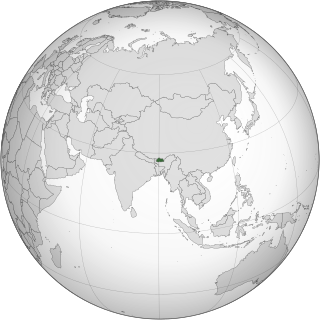
Lesbian, gay, bisexual and transgender (LGBT) people in Bhutan face legal challenges that are not faced by non-LGBTQ people. Bhutan does not provide any anti-discrimination laws for LGBT people, and same-sex unions are not recognised. However, same-sex sexual activity was decriminalised in Bhutan on 17 February 2021.
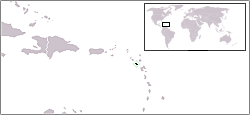
Lesbian, gay, bisexual, and transgender (LGBT) persons in Montserrat face legal challenges not experienced by non-LGBTQ residents. Same-sex sexual activity has been legal in Montserrat since 2001.

Lesbian, gay, bisexual, and transgender (LGBT) people in Mongolia face legal and social challenges not experienced by non-LGBT people, though there have been substantial improvements since the 1990s. Homosexuality was criminalised in Mongolia in 1961 through its Criminal Code. Following the Mongolian Revolution of 1990 and the peaceful transition to a democracy, homosexuality was legalised and awareness about LGBT people has become more prevalent. Hate crimes on the basis of sexual orientation and gender identity result in additional legal penalties. Hate speech based on these two categories has been outlawed in the country since 1 July 2017. Households headed by same-sex couples are, however, not eligible for the same legal protections available to opposite-sex couples.
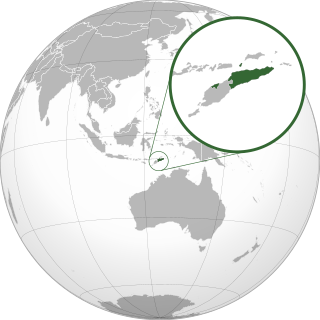
Lesbian, gay, bisexual, and transgender (LGBT) people in East Timor face legal challenges not experienced by non-LGBTQ residents. Both male and female same-sex sexual activity are legal in East Timor, but same-sex couples and households headed by same-sex couples are not eligible for the same legal protections available to opposite-sex married couples.

Lesbian, gay, bisexual, and transgender (LGBT) persons in Macau, a special administrative region of China, face legal challenges not experienced by non-LGBT residents. While same-sex sexual activity was decriminalized in 1996, same-sex couples and households headed by same-sex couples remain ineligible for some legal rights available to opposite-sex couples.

Historically speaking, lesbian, gay, bisexual, and transgender (LGBTQ) people have not been given equal treatment and rights by both governmental actions and society's general opinion. Much of the intolerance for LGBT individuals come from lack of education around the LGBT community, and contributes to the stigma that results in same-sex marriage being legal in few countries (31) and persistence of discrimination, such as in the workplace.

The following outline offers an overview and guide to LGBTQ topics: